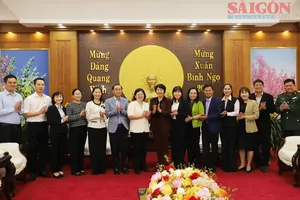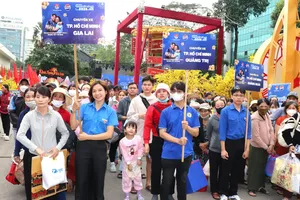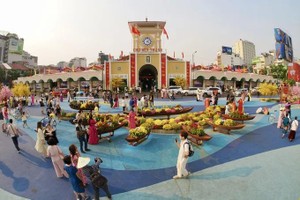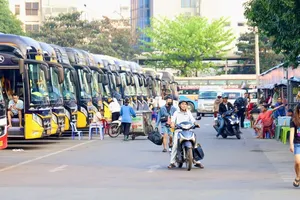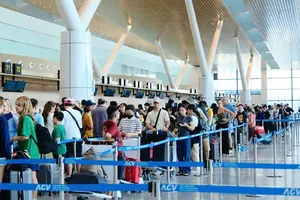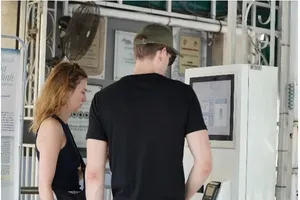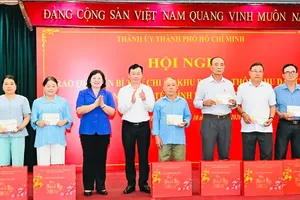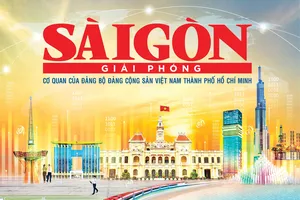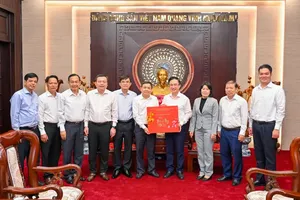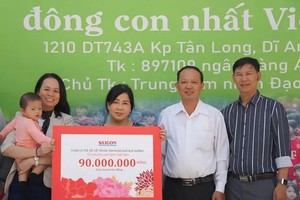As the economic powerhouse of the Southern region, with strong infrastructure and a skilled workforce, HCMC had held the top spot for the past two years (2022 and 2023), attracting FDI totaling $3.94 billion and $5.85 billion, respectively.
In 2022, HCMC accounted for approximately 14.2 percent of the country's total FDI, rising to nearly 16 percent in 2023. However, in 2024, the total FDI in HCMC dropped sharply to $2.2 billion, a decrease of 39.5 percent compared to the previous year. While the number of new projects (1,285) increased by 14.7 percent, the registered capital fell to $475 million, a drop of 18.3 percent.
Additionally, FDI through equity investments, stock purchases, and capital acquisitions amounted to only $1.27 billion, or 49.2 percent of the total. By the end of 2024, HCMC remained the leading FDI destination in the country with the accumulated capital of $58.45 billion, but the fluctuations in 2024 are concerning.
Mr. Hua Quoc Hung, Head of Ho Chi Minh City Export Processing and Industrial Zones Authority (HEPZA), explained that a key challenge remains the limited industrial land, which makes it difficult to attract large-scale projects. While the number of projects has increased, total investment has decreased.
In Saigon High-Tech Park, projects in electronics, microchips, and semiconductors are allocated only 0.5 to 3 hectares, which is insufficient for major investors. HCMC's industrial land covers around 6,000 hectares, but 1,500 hectares face legal issues or have not been cleared for development. While some industrial parks are not yet fully utilized, a significant portion has either completed compensation or is in the process but has not signed land lease contracts with the government, preventing further investment.
In addition to the shortage of business and production space, another challenge is the slow processing of administrative procedures. In early January 2025, the European Chamber of Commerce in Vietnam reported a positive business confidence index (61.8) for Q4 2024 but highlighted that businesses remained frustrated with complex procedures, unclear regulations, and difficulties in obtaining permits. HCMC is no exception.
Recently, Castrol BP Petco reported that it had been more than two months without a response regarding the procedure to adjust its investment certificate. The Japanese Chamber of Commerce and Industry in HCMC also stated that its member companies applying for permits to open a second retail outlet were still required by authorities to conduct an economic needs test, despite the fact that this requirement was abolished on January 14, 2024, under the Comprehensive and Progressive Agreement for Trans-Pacific Partnership (CPTPP), of which Vietnam is a member.
To improve the situation, in addition to traditional solutions, more emphasis should be placed on increasing land allocation capacity and streamlining administrative procedures. While land cannot be expanded, HCMC has not fully utilized its available land.
On one hand, the city should expand or establish new, large, and modern industrial zones to meet foreign investors' needs. On the other hand, a "filter" system should prioritize green, environmentally friendly projects and be implemented more effectively. Additionally, processing times should be shortened by enhancing the use of information technology to automate and ensure transparency in the investment licensing process, ensuring prompt resolution of businesses' legitimate requests.
Only with a comprehensive set of solutions can HCMC maintain and enhance its appeal, securing its position as the leading destination for FDI in the future.
